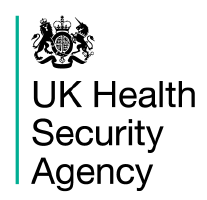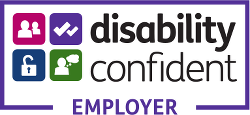Job summary
- Main area
- Science
- Grade
- Civil Service: Grade 7
- Contract
- Fixed term: 24 months (FTC for 2 years)
- Hours
- Full time
- Part time
- Job share
- Flexible working
- Job ref
- 919-GB-62055194-EXT
- Employer
- UK Health Security Agency
- Employer type
- Public (Non NHS)
- Site
- Canary Wharf or Colindale
- Town
- Canary Wharf or Colindale
- Salary
- £58,589 - £68,344 Per annum, Pro Rata
- Salary period
- Yearly
- Closing
- 31/08/2025 23:59
Employer heading

Principal Scientist (Epidemiology)
Civil Service: Grade 7
Job overview
This post is a senior role in the TARZET division, enabling the team to deliver cutting edge analysis in support of public health decision making, specifically with regard to the metagenomics Surveillance Collaboration and Analysis Programme (mSCAPE), a collaborative programme piloting the use of metagenomic data for public health surveillance and pathogen analysis.
The post holder will take a leading role in providing and developing national surveillance of pathogens identified from metagenomic data, developing guidance and leading research studies. The role will involve working in a matrix team environment to provide scientific support to the analysis, operation, and development of metagenomic surveillance systems including development of methodology and directing changes to data capture systems in liaison with system architects and software developers. The role may involve day-to-day management of scientific, technical and information staff.
The post-holder will sit in the Acute Respiratory Infections unit, whose functions include horizon scanning for respiratory pathogens, as well as surveillance and guidance for avian influenza, MERS-CoV, Legionella spp and Mycoplasma pneumoniae. They will also work in an integrated way with other teams in the TARZET division (TB, Acute Respiratory, Emerging Infections and Zoonoses and Travel Health) and the Genomics Public Health Analysis team (GPHA) within the Emerging and Epidemic Infections Directorate.
Main duties of the job
Surveillance, Epidemiology & Public Health:
- Lead and manage the design, development, and continuous improvement of metagenomic pilot surveillance systems as required.
- Conduct complex statistical and epidemiological analyses of metagenomic and other pathogen data, as required, drawn from a variety of surveillance sources. Provide expert technical advice and assistance to public health and clinical practitioners on the design, maintenance, analysis and interpretation of databases.
- Provide expert advice in response to ad hoc enquiries from Government agencies, public health practitioners, academics, media, commercial organisations and members of the public.
- Develop methodologies to ensure emerging threats are recognized in a timely manner by the analysis and interpretation of often complex data from a variety of sources to understand the public health significance of the potential risk. You may be required to provide epidemiological support to incidents or outbreaks. Ensure the scientific validity and evidence-base of risk assessments, and that findings are communicated to the relevant stakeholders nationally and internationally through situation reports and briefing notes.
Working for our organisation
We pride ourselves as being an employer of choice, where Everyone Matters promoting equality of opportunity to actively encourage applications from everyone, including groups currently underrepresented in our workforce. UKHSA ethos is to be an inclusive organisation for all our staff and stakeholders. To create, nurture and sustain an inclusive culture, where differences drive innovative solutions to meet the needs of our workforce and wider communities. We do this through celebrating and protecting differences by removing barriers and promoting equity and equality of opportunity for all. Please visit our careers site for more information https://gov.uk/ukhsa/careers
Detailed job description and main responsibilities
Main duties and responsibilities continued:
- Identify requirements for development of specialist advice on the epidemiological aspects of metagenomic analysis, by contributing to the development of guidance, designing data collection systems, interpreting epidemiological data, conducting statistical analyses, and contributing to scientific publications.
- Manage scientific and administrative staff in the maintenance, development, statistical analysis, quality outputs and reporting from datasets. Undertake periodic evaluation of surveillance systems including stakeholder engagement exercises.
Research:
- Design analytical strategies and supervise complex statistical analyses of research datasets for the production of project reports, papers for peer reviewed journals and conference presentations.
- Initiate collaborative projects within UKHSA and external collaborators to address metagenomic research questions. This may also include taking a lead on research proposals for externally funded projects and provision of expert advice to academic units and other agencies involved in collaborative epidemiological and microbiological studies.
Management and Planning:
- Work alongside other members of the TARZET division on:
a. the business planning process and the development of surveillance/research, communication, training strategies etc
b. Compare, analyse and interpret highly complex options for running projects identified as key public health priorities, and communicate this information across organisations and key stakeholders
c. Budget responsibility for section led grants
d. Selection and recruitment of staff, including, shortlisting applicants and interviewing candidates selected for interview
e. Staff management responsibilities to be agreed with line manager
f. Being responsible for developing quality control processes, participating in audits and ensuring resilience through maintaining Standard Operating Procedures and business continuity planning
g. Being responsible for ensuring their team’s work complies to UKHSA standards and governance requirements including maintaining confidentiality and security of surveillance information
h. Development of business cases to support system developments: this may include undertaking relevant procurement requirements and management of supplier relationships - Deputising for other members of the mSCAPE programme team as required.
Publications and presentations:
- Plan and oversee the development of epidemiological outputs including outward facing publications such as annual reports, web pages, writing of scientific papers for publication in peer reviewed journals and manage junior scientific and administrative colleagues in the development of manuscripts
- Represent the programme on expert committees, national and local incident control teams, national/international meetings and conferences.
Teaching and Training:
- Contribute to the training for new members of staff on the epidemiology and surveillance of communicable disease
- Participate in wider scientific activities to maintain professional standards including peer review of manuscripts.
Professional Development
Identify, discuss, and action own professional performance and training / development needs with your line manager through appraisal / individual development plan. Attending internal / external training events
- Participate in all mandatory training as required, i.e., fire safety, information governance and all other mandatory training.
Key Working Relationships
The post holder will develop working relationships and communicate regularly with a wide range of individuals, clinical and non-clinical, internal and external to UKHSA. This will include:
• Medical, scientific and administrative colleagues working within the mSCAPE programme and TARZET Division
• Staff in other departments of UKHSA, especially colleagues in Regional and reference Laboratories and (CDO) Chief Data Officer Group.
• Government Departments including Department of Health and Social Care, NHS England and NHS Improvement, NHS Digital; Devolved Administrations
• Other clinical, public, infection control, scientific and academic staff in national, regional and local institutions in and outside the UK
• Voluntary and statutory sector agencies
Essential role criteria:
- Higher degree in epidemiology/ public health/ microbiology or equivalent experience working in public health, academia or laboratory sciences
Training in research methods, infectious disease epidemiology, surveillance, prevention and/or public health - Knowledge and work experience of communicable disease epidemiology, surveillance and prevention including healthcare associated infection and/or antimicrobial resistance and/or antimicrobial prescribing
- Broad understanding of and experience of health care systems, public health and the communicable disease function in the UK
- Strong statistical analysis of large and complex datasets, including knowledge and experience with R or Python
- Writing research protocols, grant applications and scientific reports
- Preparing and reviewing standard operating procedures
- Able to work effectively in a multi-disciplinary team and motivate and encourage team members
- Ability to make decisions autonomously, when required, on difficult issues including problem solving, working to tight and often changing timescales
- Communicate ideas and methods clearly and succinctly
Desirable role criteria:
- Creating, validating and managing large databases and datasets
- Presenting scientific papers at national and international meetings and conferences and proven peer review publication record
- Experience of working within the NHS or other health related sectors
- Managing and leading scientific and technical staff including working under pressure and to tight deadlines
- Liaising with a wide range of external collaborators including health service and academic professionals
- Maintaining required levels of confidentiality
Selection Process Details:
This vacancy will be assessed using a competency-based framework which will assess your qualifications, knowledge and experience and / or skills and abilities outlined in the essential criteria.
Stage 1: Application & Sift
You will be required to complete an application form. You will be assessed on the listed (9) essential criteria, and this will be in the form of a:
- Application form (‘Employer/ Activity history’ section on the application)
- 1000 word supporting statement.
This should outline how your skills, experience, and knowledge, provide evidence of your suitability for the role, with reference to the essential criteria.
The Application form and supporting statement will be marked together.
Longlisting:
In the event of a large number of applications we will longlist into 3 piles of:
- Meets all essential criteria
- Meets some essential criteria
- Meets no essential criteria
The following will be taken through to the next stage:
- Meets all essential criteria
- Meets some essential criteria
Shortlisting:
In the event of a large number of applications we will shortlist on the following:
- Higher degree in epidemiology/ public health/ microbiology or equivalent experience working in public health, academia or laboratory sciences
- Training in research methods, infectious disease epidemiology, surveillance, prevention and/or public health
- Knowledge and work experience of communicable disease epidemiology, surveillance and prevention including healthcare associated infection and/or antimicrobial resistance and/or antimicrobial prescribing
Desirable criteria may be used in the event of a large number of applications / large amount of successful candidates.
If you are successful at this stage, you will progress to interview & assessment.
Please do not exceed 1000 words. We will not consider any words over and above this number.
Feedback will not be provided at this stage.
Please note you will not be able to upload your CV. You must complete the application form in as much detail as possible. Please do not email us your CV.
Stage 2: Interview (competency based)
You will be invited to a (single) remote interview.
Knowledge, experience, skills & abilities will be tested at interview
You will be asked to prepare and present a 5-minute presentation at the start of your interview. The subject of this will be sent to you prior to interview.
Interviews will be held week commencing 8th September. Please note, these dates are subject to change.
Once this job has closed, the job advert will no longer be available. You may want to save a copy for your records.
Eligibility Criteria - External
Open to all external applicants (anyone) from outside the Civil Service (including by definition internal applicants).
Location
This role is being offered as hybrid working based at our Core HQ in Canary Wharf Or our Scientific Campus in Colindale.
We offer great flexible working opportunities at UKHSA and operate using a hybrid working model where business needs allow. This provides us with greater flexibility about how and where we work, to get the best from our workforce. As a hybrid worker, you will be expected to spend a minimum of 60% of your contractual working hours (approximately 3 days a week pro rata, (averaged over a month). Our core HQ offices are modern and newly refurbished with excellent city centre transport link and benefit from benefit from co-location with other government departments such as the Department for Health and Social Care (DHSC).
Security Clearance Level Requirement
Successful candidates must pass a disclosure and barring security check.
Successful candidates must meet the security requirements before they can be appointed. The level of security needed is Basic Personnel Security Standard Or Counter-terrorist Check (if based at the Colindale site).
For meaningful National Security Vetting checks to be carried out individuals need to have lived in the UK for a sufficient period of time. You should normally have been resident in the United Kingdom for the last 3 years as the role requires Counter Terrorism Check (CTC) clearance. UK residency less than the outlined periods may not necessarily bar you from gaining national security vetting and applicants should contact the Vacancy Holder / Recruiting Manager listed in the advert for further advice.
Person specification
application form and supporting statement
Essential criteria
- application form and supporting statement
Essential Criteria
Essential criteria
- Questions on Knowledge, experience, skills and ability
Applicant requirements
The postholder will have access to vulnerable people in the course of their normal duties and as such this post is subject to the Rehabilitation of Offenders Act 1974 (Exceptions) Order 1975 (Amendment) (England and Wales) Order 2020 and as such it will be necessary for a submission for Disclosure to be made to the Disclosure and Barring Service to check for any previous criminal convictions.
Documents to download
Further details / informal visits contact
- Name
- Gurkamal Bhambra
- Job title
- Resourcing
- Email address
- [email protected]
List jobs with UK Health Security Agency in Health Science Services or all sectors






